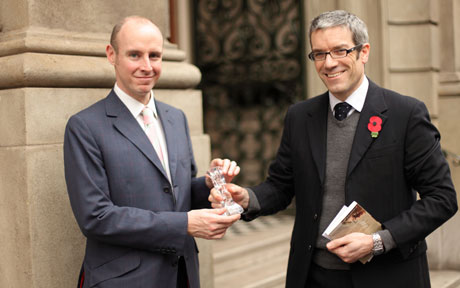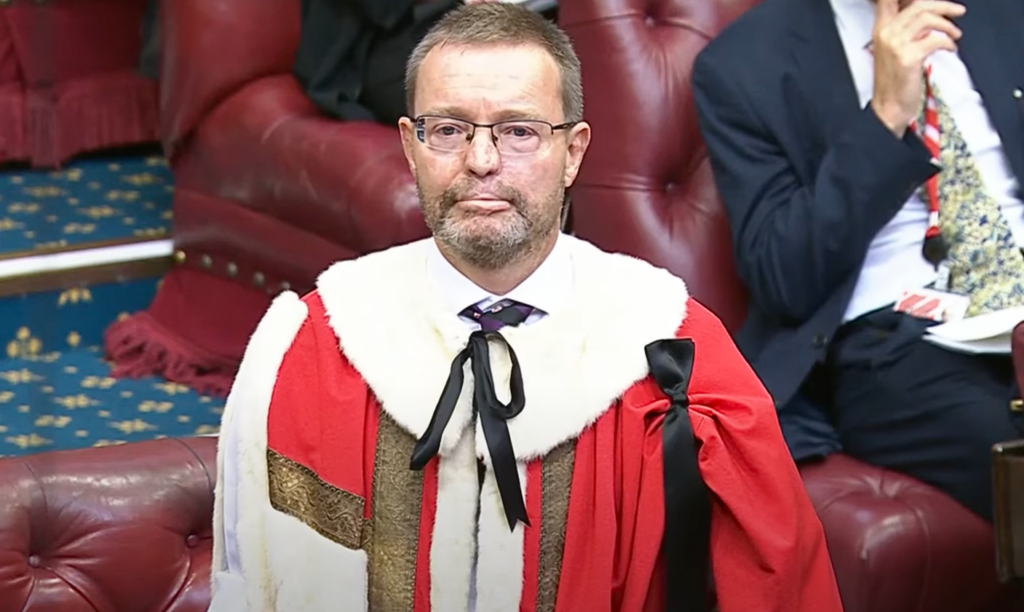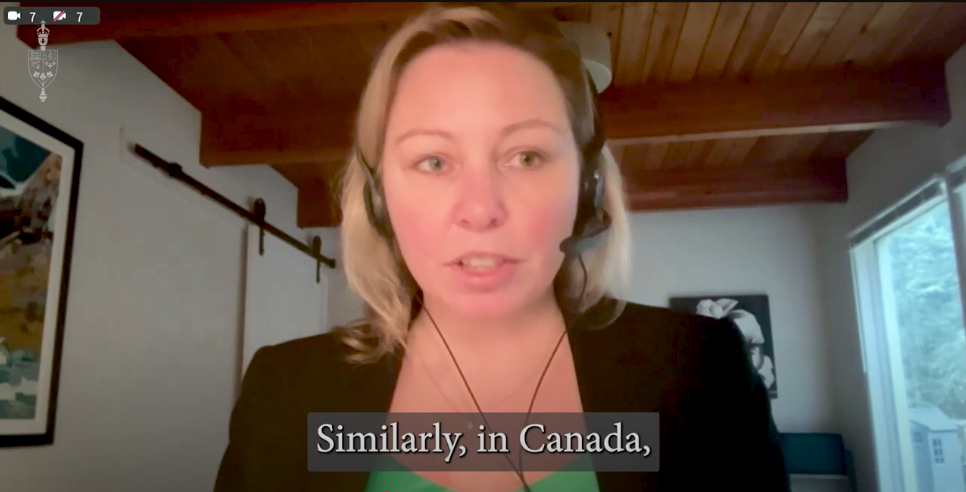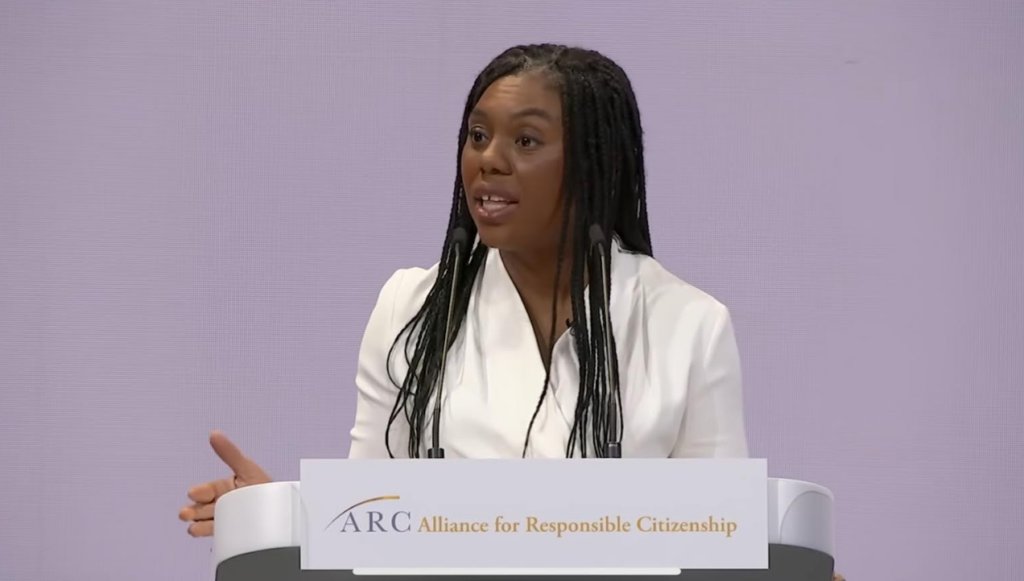Our latest DeSmog UK epic history series post looks at Julian Morris’s ExxonMobil-funded, climate sceptic publication Adapt or Die.
Julian Morris, the president and founder of the International Policy Network (IPN), was leading the British charge against climate science and the UN’s Intergovernmental Panel on Climate Change (IPCC) in 2003.
The London-based free market think tank published Adapt or Die: The Science, Politics and Economics of Climate Change just in time for the climate negotiations at the Conference of the Parties (COP) summit held in Milan in December.
Adapt or Die was a veritable directory of climate sceptics from both the UK and the US.
The foreword by University of London professor Philip Stott opens with: “This book is both important and timely because it confronts one of the most tenacious myths of the new millennium, namely the dangerously mistaken belief that the correct approach to climate change is to try and ‘manage’ climate itself.”
Morris contributed a chapter under the title “Warming Aid, Chilling Trade”, in which he made the rather hilarious claim that “The international establishment, including environmentalists… have bullied two of the world’s three largest oil producers into accepting the basic proposition that global control of energy resources is really necessary.”
The book was edited by Morris’s wife, Kendra Okonski, who was also working at the IPN.
Free Market Fire
The two met when Okonski was working as a research assistant for climate denier Fred Smith at the Competitive Enterprise Institute (CEI) – funded by Philip Morris, Dow Chemicals and ExxonMobil – after graduating from a free market college.
Okonski had gained a reputation, even among the free market zealots, as being “fiery” and determined.
Morris had been speaking at a conference called the Precautionary Principle held by American non-profit organisation Consumer Alert three years earlier, when Okonski was swept off her feet by his chiselled good looks and devotion to the free markets.
Smith recalls: “He was delivering a speech; he looked down at Kendra, with her big eyes, and thought: ‘scary’. It was a public policy marriage.”
Morris said: “Kendra is a beautiful, engaged and inspiring woman; she is the love of my life. We share a deep desire to improve the lot of humanity through the empowering institutions of a free society: property rights, markets and the rule of law. So far as I am aware, we came to those ideas independently, but I cannot speak for Kendra.”
Exxon Funding
At the time of Adapt or Die’s publication, the IPN was being heavily funded by ExxonMobil.
In 2003, the oil company donated $50,000 to Morris, his wife and their small team in Covent Garden. This would have nearly covered the entire £51,732 spent on their “climate change and sustainable development programme”.
The following year, this was increased to $115,000 in recognition of their excellent work in attacking climate science.
Martin Agerup, a contributor to Adapt or Die, was invited to London by Morris and Okonski to give a workshop on how to run a think tank. He saw no indication of generous funders behind the scenes.
“I even stayed at their private flat once, when they invited me over, and they were very cost-conscious. I think they were running on a very tight budget. I remember that they were very concerned… When I was invited over I had to fly Ryanair or something like that. A really, really cheap ticket.”
He added: “Climate was their pet issue, something they found really interesting but had difficulties finding funding for that, I think.”
Sceptic Think Tanks
Overall, ExxonMobil gave a total of £3.5 million to climate sceptic think tanks in the US during 2003.
The American Enterprise Institute was given $225,000, the Cato Institute $25,000 and the Marshall Institute $25,000. The oil giant donated a further $50,000 to the Friends of the Institute of Economic Affairs the following year for “climate change issues”.
This was entirely unrelated to the fact that the Institute of Economic Affairs (IEA) in London had just published Climate Alarmism Reconsidered by Dr Robert Bradley.
In the book’s foreword, Philip Booth, the IEA‘s Editorial and Programme Director, wrote: “scary climate scenarios are not supported by the balance of evidence. What is known with far more confidence is that a moderately warmer and wetter world has significant benefits to offset costs for many decades to come.”
The publication was written with the help of the Morris, CEI and Exxon-funded scientists Richard Lindzen and Pat Michaels.
Morris remained busy going into 2004. He gave a presentation at free marketeer Friedrich von Hayek’s old stomping ground, the Mont Pelerin Society – one of many neoliberal think tanks that Hayek set up – and told the assembled economists that it would be the free market rather than regulations that would solve the problem of climate change, if there were indeed a problem.
Next time in our DeSmog UK epic history series we recall the falling out between long-term friends and free marketeers Julian Morris and Roger Bate.
Subscribe to our newsletter
Stay up to date with DeSmog news and alerts







